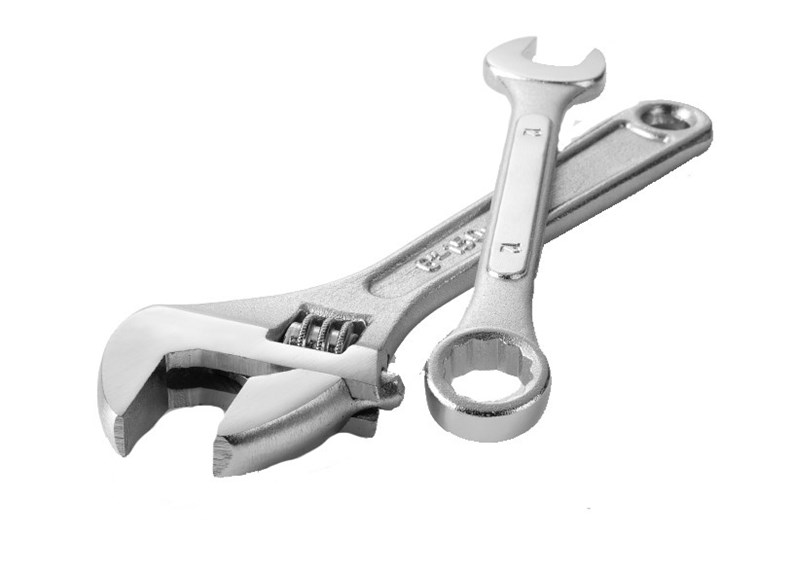Apartment buildings, whether cooperatives or condos, are inherently fragile. When that many units share the same plot of land, and the same walls, the same floors, the same elevators and stairways, standpipes and boilers, lobbies and roofs, disasters—whether broken water pipes or the tragic in the case of decomposing bodies, fatal fires or building explosions—have the potential to spread quickly. Thus, when something nasty befalls a building, the first order of business is to contain the problem.
Once the situation has been contained, however, then the hard part begins: the cleanup. How do buildings get back on their proverbial feet after a major maintenance meltdown? What should a board or property manager know about dealing with disasters? And is there a way to prevent bad things from happening in the first place? Let's take a look.
Water, Water Everywhere
When contemplating disasters, the first example that comes to mind is usually fire. Fire, after all, can spread quickly and devastate an entire city, and do so in spectacular fashion.
However it's not fire, but the element that puts it out that causes most of the damage to residential buildings.
"Look around, and see how many buildings are burning right now," says Ron Alford, the founder and president of Disaster Masters Inc., a Queens-based company that often does work in New Jersey. "None. On the other hand, water damage is going on right now, as we're talking," or as you're reading this.
Water damage can happen in many ways. Beside flash flooding, which can happen in many areas of New Jersey, and often does, there are other sources of water infiltration. In the winter, Alford says, if it's nine degrees outside for a few days, and the right combination of doors are left open accidentally, the standpipe—the central conduit for water in the building—can break. In the summer, condensation from air conditioning units that aren't tilted outside the right way can wreak havoc on hardwood floors, especially in apartments that have been vacated for the season. Alford recalls a situation when he walked into a condo and because of an air conditioner leak the parquet floor swelled to the size of a Volkswagen!
Central air systems can also develop mold problems if dust and dirt clog the drainage system and can overflow into the apartment. Mold could also affect a condo or HOA if wind-driven rain begins to seep through brick and is hidden between the plaster of the drywall. "If there is organic material there, mold will grow," Alford says. Mold can be dangerous to some, depending on age and the types of mold. Some types will make you sick and have the potential to cause respiratory problems.
Another way water can do damage is through leaking pipes. Leaky pipes can drip into the apartment downstairs, and then the apartment two floors down, and then the one floor below that. Remedying this kind of problem can escalate to the total replacement cost of the entire building, says Alford, if the damage is extensive.
Floods of this nature are seldom the result of negligence, Alford says.
"These are not caused by shoddy maintenance," he explains. "Because of the local laws, the buildings are all well-maintained. The things we do tend to be sudden and insured."
Like the water damage that happens after a fire. If a third floor apartment catches fire, the floors on top could be lost to the fire, and all the floors below will suffer water damage, says Alford. The walls peel, basements flood and personal items such as computers, furniture or paperwork are ruined. In these cases, most people call their insurance first, says Alford. However, they should consider the restoration of the building first, he advises, by immediately calling professionals to help clean up the mess.
Insurance can be its own headache. Insurance companies can send the wrong personnel to handle a problem, or, worse, deny a claim. Getting money from insurance companies can be such a tricky process, in fact, that Alford has a side business that deals solely with getting claims paid by insurance companies, and has authored a book on the subject.
What a restoration company can do with water damaged condos or HOAs depends on what the damage is. "There is no such thing as boiler plate restoration," says Alford. "It depends on the depth of the situation. Everything needs to be looked at on a case by case basis."
There is no way to prevent certain water disasters from happening, however there are ways to make sure your building is ready to handle one. The number one way to do this is to make sure you can control the water in your building. "The most dangerous thing in a building is a water valve that won't shut off," says Alford. He says many buildings don't check their valves to make sure they are functioning. When a pipe breaks, you have to be able to turn the valve off right away.
Remains of the Day
Then there is the other potential disaster—the decomposing body. Sometimes there is violence involved—suicides or homicides, for example—but usually, the decomposing body problem occurs when a single, typically elderly person dies, and no one realizes it until the smell trails into the hallway.
"Let's say an elderly person dies of natural causes," says Ron Gospodarski, president of Bio-Recovery Corp. based in Long Island City. The company also does work in Northern New Jersey. "It goes undetected for days or weeks until someone smells it and calls 911."
The police then come and seal off the area while they conduct an investigation. "Nobody can go in there," Gospodarski says. "And you have this nasty odor coming out."
The more the body decomposes, the worse the odor gets. "The odor will infiltrate everywhere," says Ron Vogel, president of Emergi-Clean Inc. in Linden, New Jersey.
Once the police determine that the death was not a homicide, the body is taken away. But some of the remains remain—and those remains reek. This can be extremely unpleasant—and dangerous.
In one case, Gospodarski says the liquefied remains had eaten through the hardwood floors—it was a brownstone, so there was no concrete between the floors.
"Bodily fluids were dripping into the apartment below, where there was a newborn baby," he recalls.
This is, needless to say, not the most healthful situation.
Cleaning up human remains is not generally something that's covered at board meetings. Many property managers are probably at a loss as to what exactly the next step should be. There is no subheading for this kind of thing in the Yellow Pages—and that's not the most effective disaster preparedness anyway.
"The worst thing you can do is use a phone directory for a disaster," Alford says.
Many boards or property managers will ask the super to handle the mess. Not only does this put the health of the super at risk, and subject the building to major liability, it's also illegal.
"Supers are often forced to do it, which is illegal," says Gospodarski. "Who can clean it up legally? Fifty percent are cleaned up by managers or supers. Is that legal? No."
To legally handle human remains, one requires yearly shots for hepatitis B, as well as special training and certification from the Occupational Safety & Health Administration (OSHA) and the Department of Environmental Protection or Conservation, which is prohibitively expensive for most buildings.
"The cost would be unbelievable," says Vogel. The total cost to meet all of the requirements would be in the thousands of dollars for each individual certified, he says.
Then there's the matter of disposal. Let's say someone dies in bed, and bodily wastes infiltrate the mattress.
"Where do they dispose of it? You can't put it in the sanitation system," says Gospodarski. "It has to go by red bag. You have to be licensed to pick it up."
This doesn't stop bloody mattresses from finding their way into the regular trash, of course. But that is illegal, too.
Finally, there's the bottom line. Who pays for the mess? The estate of the deceased? The co-op, because the liquefied remains oozed between floors? The deceased's insurance company? The condo's insurance company? Often, the condo or co-op ends up with the tab—and a cleanup of this sort can cost anywhere from $450-$2,000.
"They say, 'Let's pay to get it fixed first,' and then they'll worry," Vogel says.
"Often, the management company will pay, and then get the money from the board," says Gospodarski.
What should a building do to prepare for such a catastrophe?
"Good disaster management begins with disaster prevention. You need to know who to call," says Alford. Managers and boards should have an emergency or restoration company in mind before a disaster strikes.
Some companies even offer "pre-disaster audits," where teams would inspect the premises for potential problems.
What It Teaches You
Surviving an emergency takes patience and understanding, says Donna Ross, director of management at Andrea Bunis Management in Manhattan, a 30-year veteran in property management.
"As a property manager, the job itself teaches you to juggle many things at once so that you are able to accomplish your goal—add a lot of patience and consideration to the mix and you can survive a crisis...or this job in general."
Residents need to trust the board, management and the hired professionals to maintain the public safety and health and well-being of the residents they're entrusted to care for. "In order to be an effective property manager you need to wear many hats," says Ross. "You need to be able to be calm under pressure, caring and considerate, understanding that you're dealing with people's homes, a very sensitive subject. In an agent's day, very few people are calling to thank you for something you may have done, most calls are complaints. You need to take the call, solve the problem and move on," she says, adding that you need to also manage the stress that comes with the job.
Greg Olear is a freelance writer, editor, web designer, astrologer and stay-at-home dad living in Highland, New York.







Leave a Comment